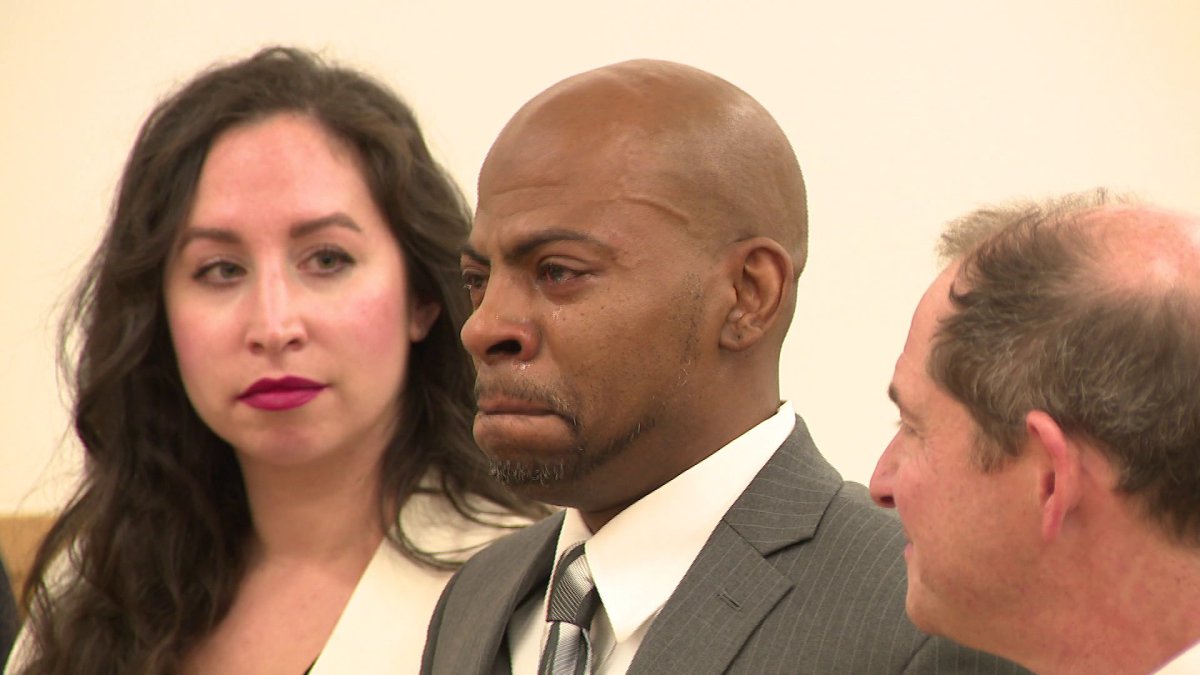Pair of Brooklyn Men Exonerated, Latest Louis Scarcella Convictions to Be Overturned
After serving 41 combined years in prison, the men received vindication this week.

After serving 41 combined years in prison, the men received vindication this week.

Shortly after Brooklyn Supreme Court Justice ShawnDya Simpson announced his exoneration, John Bunn broke down in tears. To be relieved of the burden 17 years of incarceration and eight post-prison years proclaiming his innocence was too much for him to bear. Overwhelmed with joy, he approached the bench and took Justice Simpson’s hands as they shared an emotional moment. Simpson was apologetic about the matter, saying, “I am more than emotional about this day. You were 14 at the time. This shouldn’t have ever happened.”
Bunn, now 41, was convicted of the murder of an off-duty correctional officer in 1991. He was 14-years-old at the time. Rosean Hargrave, then 16, was convicted of the same crime. He served 24 years in prison and was also exonerated earlier this week. He, like Bunn, was moved to tears as his conviction was overturned.
The “false and and misleading practices” of glorified-turned-beleaguered NYPD Louis Scarcella ultimately led to the pair’s exoneration. Scarcella has been under extreme scrutiny the past five years since the Brooklyn DA‘s office began examining over 70 of his convictions.
He was the NYPD’s most prolific detective throughout the 80s and 90s, developing a reputation for quickly solving any case that came across his desk. Lately, however, the rhetoric around his cases has changed. As the DA’s office has examined his work, over a dozen of his convictions have been overturned, and the city has spent over $20 million in settlements with wrongfully imprisoned men Scarcella put away.
The reexamining of Scarcella’s cases began in 2013 with David Ranta. After a Williamsburg robbery went wrong in 1990, the robber fled the scene, killing rabbi Chaskel Werzberger after stealing his car. After six months of detectives getting nowhere, Scarcella and his partner Stephen Chmil produced two accomplices who testified that David Ranta was the robber and killed Werzberger. Scarcella then allegedly coaxed a confession out of Ranta, a drug addict and painter at the time.
During his trial, Ranta denied ever giving the confession, and the initial robbery target even testified that Ranta was “100 percent not” the one who pulled a gun on him (GQ). Nevertheless, Ranta was convicted on the testimony of his alleged accomplices, even though they initially a identified another man as the perpetrator who was found to be in Yugoslavia at the time of the crime. Neither “accomplice” was ever indicted.
It is also used for the same purpose that is treating erectile dysfunction and men’s problems during sexual activity. click here for info levitra 40 mg
Ranta claims the signed confession used in court (written on a file folder) was blank when he signed it. He was told he had to sign the folder in order to get access to a phone in the police department. 23 years later, one of the case’s witnesses came forward with a statement that he was coached on which suspect to pick out of a lineup. The two supposed accomplices also revealed that they lied about their involvement to receive relief from their own legal issues. This led to Ranta’s release and subsequent $6.4 million settlement.
Similar questionable tactics existed in Bunn and Hargrave’s case. Fingerprints found at the scene didn’t match either of them, and the victim’s partner who was present during the attack identified two light-skinned men in their 20s (Bunn and Hargrave were dark-skinned teenagers). Though both men had already been released from prison, the exoneration validated the claims of innocence that they vehemently stood by throughout the past 27 years.
Thankfully, the DA’s office has dedicated serious time and effort to rectifying these cases, and the city has paid large sums to many of the victims of wrongful imprisonment. Still, it begs the question: when will Louis Scarcella be held accountable for the wrongdoings he so apparently committed? It’s unlikely that he ever will. The statute of limitations is up for charging him with perjury in testifying that false evidence is true. Even more significantly, the DA’s office stated last year that Scarcella did nothing illegal in their eyes.
Rather than ruminate on the implications of the potential widespread corruption in our city’s legal system, though, perhaps it’s best to celebrate the clearing of two innocent men’s names for now, and save such dark thoughts for another day.
Comments are closed.

Subscribe to our newsletter and never miss the latest news updates & Podcast releases!

send Scarella to jail for the sum of the years of the human beings that were/are wrongly incarcerated for his delirium and craziness.
,